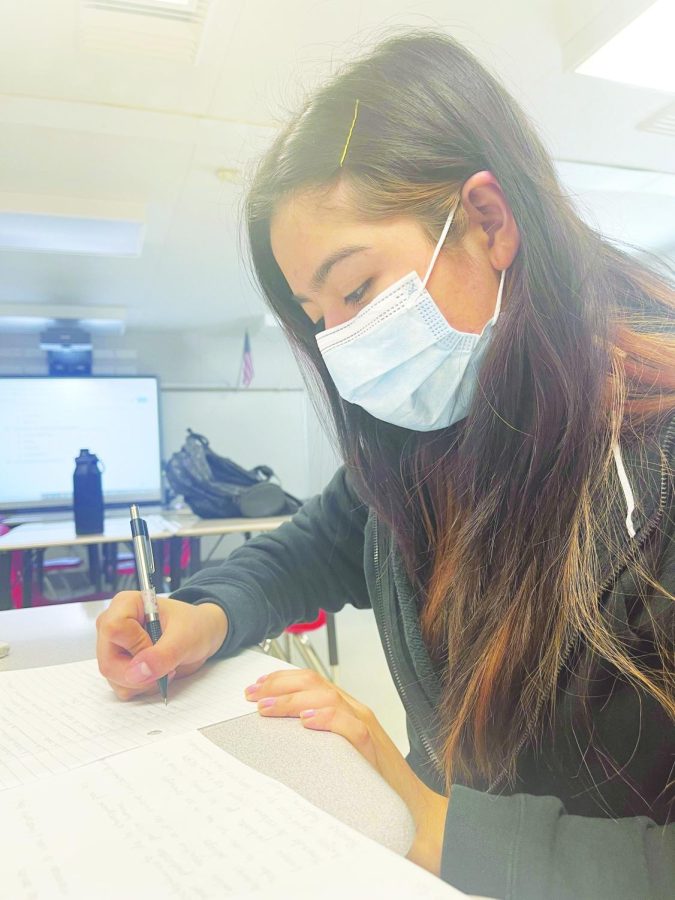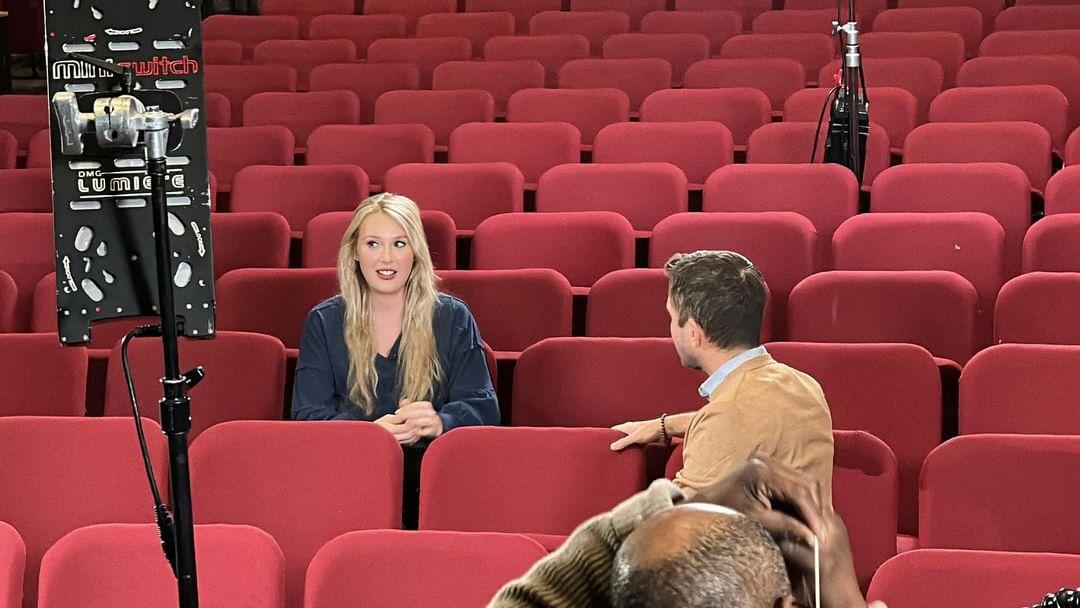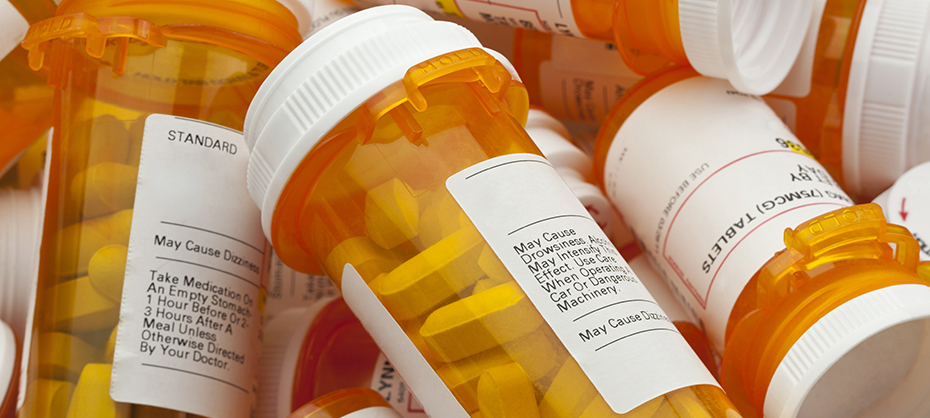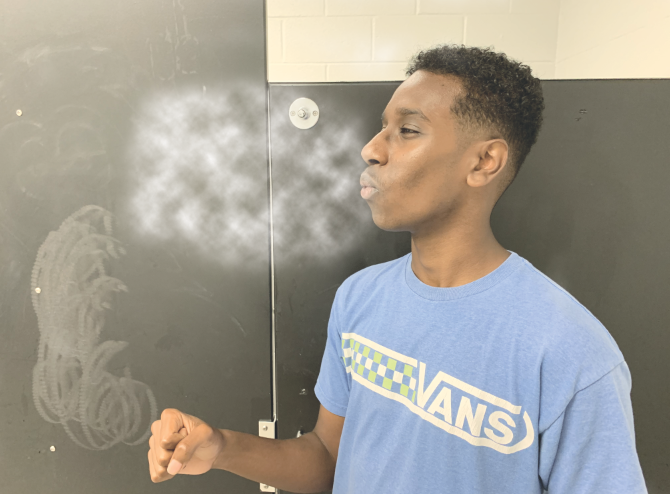
Its name has the power to make even the most mature adult squirm with uneasiness. It is bought, sold and referenced under countless street terms, all hiding its true identity. It is outlawed for non-medical purposes in all 50 states and can transform the human body in seconds, and it has found its way into the lives of high school students.
In this day and age, there is no denying the role that marijuana and other drugs play in the lives of students. With support for the legalization of marijuana at an all-time high, AHS students and community members weigh in on the role of the drug in the everyday lives of students.
According to Gallup’s Oct. 6-9 annual crime survey, a record-high 50% of Americans now believe that marijuana should be legalized. This is the highest the numbers have been since Gallup began conducting the survey in 1969, when only 12% of the country supported legalization. Furthermore, based on the results of the poll, 62% of those between the ages of 18 and 29 now support its legalization.
Although other polls have reported different findings, these numbers still raise questions concerning the role of the drug in the lives of students.
“I don’t think that it plays a major role in students’ lives,” senior Tatiana Niang said. “But I feel that it is beginning to be a problem at AHS because that is what everyone seems to be interested in as opposed to in previous years when it was only certain groups.”
Although some people believe that students are being increasingly exposed to marijuana and other drugs, the results of the Fairfax County Youth Survey prove different. According to surveys conducted over the past 10 years, the percentage of students reporting alcohol, cigarette and marijuana use in their lifetime has decreased significantly.
Since 2001, the percentage of students that have used alcohol has decreased from 59.3% to 45.5% and the percentage of students that have used tobacco has decreased from 42.9% to 20.1%.
Meanwhile, the percentage of students that reported lifetime marijuana use has decreased from 26.2% to 20.2%, surpassing tobacco as the second most used drug among those surveyed.
These results, which incorporate information reported by 8th, 10th and 12th graders throughout FCPS, cannot be considered illustrative of drug use specific to AHS. Instead, they reflect reported drug use throughout Fairfax County, which means that the results must be evaluated in a countywide context.
“My recollection is that our abuse rates are not significantly different and may in fact be lower than other FCPS schools,” PTSA President Emily Slough said in reference to the AHS-specific results from the Fairfax County Youth Survey presented to the PTSA at a fall 2009 meeting.
“I don’t think that we have a bigger problem than other high schools in the area,” Slough added. “I think that yes, abuse takes place, but we’re no worse than any other high school.”
Junior Kalie Rosati holds a similar outlook on the role of drugs in the lives of AHS students.
“[Drugs are] not any more of a problem [at AHS] than at other schools,” Rosati said. “It depends on who you ask, but I think that AHS’s drug problem isn’t really different than any other high school’s.”
Regardless of the actual presence of drugs at AHS, the administration remains steadfast in its enforcement of cases involving marijuana and other illegal substances.
“If you’re in possession [of marijuana] on school grounds, that’s usually an expulsion,” Principal Vince Randazzo said. “The instances that I had as an administrator last year, many of them were for possession. I don’t know if it’s an increase [in the number of students using marijuana].”
In light of the new high for support of legalization and the fact that marijuana has surpassed cigarettes in term of its use among FCPS students, several students were interviewed concerning their own experiences using the drug. Their identities will remain anonymous, as pseudonyms were used instead.
John, a senior with an approximate 2.5 GPA who is taking only the classes needed to graduate, began smoking marijuana the summer before his 8th grade year “to help treat the depression and anxiety I felt everyday.” John now smokes “two to three times a week and only on the weekend” for what he calls “all the right reasons.”
“I just want to step out of the panic of life when I’m not doing anything important,” he said. “I do my work. I get (expletive) done.”
A strong proponent for the legalization of the drug, John believes that “we’re wasting our money on a losing war” in the fight against drugs.
“It keeps me sane. It keeps people calm and happy, it’s illegal for no reason,” he said. “But the bureaucracy is so complex and against freedom they can’t stop shooting our tax money down a black hole with prohibition of marijuana.”
The feelings John described are due to euphoria, which is the main psychological effect of smoking marijuana. According to WebMD, marijuana can also cause a distorted sense of time, paranoia, magical or “random” thinking, short-term memory loss, anxiety and depression. In fact, although many people believe that the drug itself does not have addictive properties, marijuana is indeed psychologically addictive.
Furthermore, some experts believe that marijuana could also be physically addictive, causing symptoms of withdrawal form marijuana. These symptoms might include aggression, anxiety, a depressed mood and a decreased appetite. In addition, short-term medical effects of smoking marijuana include a rapid heart rate, increased blood pressure, an increased rate of breathing, red eyes, a dry mouth, an increased appetite and a slowed reaction time.
Because experts are still working to understand the effects of the drug and its influence on future drug use, some students believe that it will not have a negative impact on their health.
“Marijuana is the biggest thing for high school kids because it does less damage to you than alcohol or cigarettes,” John said. “You can die from alcohol, you can die from cigarettes, but with weed it just relaxes you and makes you feel better.”
This belief that marijuana will do nothing but create a feeling of euphoria among users can play a major role in students’ decisions to use the drug, as they may believe that it will have little impact on them physically.
“You can’t really say marijuana can cause addiction because it can’t,” John said. “That’s another reason pot is so big among high school students; if you have a grip on your life and smoke weed, you still have everything under control. It isn’t habit forming either; you can quit it much easier then you can cigs or alcohol.”
Because experts have yet to discern whether or not marijuana is physically addictive, many students have misconceptions concerning the effects of the drug. It is for this reason that the PTSA is taking action to increase awareness concerning drugs and their effects on students.
The PTSA will host a panel from PROTECT, a group of parents and recovering students that visits schools to talk with parents and students about the dangers of substance abuse, on Dec. 13 at 7 p.m. in Clausen Hall.
“I heard that marijuana use was on the rise countywide, not specifically at AHS, and that’s why I thought it would be a good idea to bring that group in,” PTSA President Emily Slough said.
Jane, a senior who has maintained a GPA above 4.0 while taking many IB classes and participating in both AHS clubs and honor societies, said that she smokes weed “occasionally.”
After a long day of school filled with many IB classes, Jane returns home, where mountains of homework await her. With no time to lose focus, smoking a bowl to settle her mind is not an option. It will have to wait until Friday night, when she will relax from an intense week of IB work by taking a trip to the mall.
Before returning home around 10 or 11 p.m., Jane meets up with a friend or two in a safe, secluded environment to smoke together. After spending about half an hour with her friends, Jane returns home, unquestioned by her parents. She slides into bed and soon falls asleep, only to wake up the following morning and return to the homework and service that mark her everyday life.
“Sometimes it’s once a week, or maybe I’ll go months without,” Jane said. “I usually only do it on a night that I know I won’t be doing any homework.”
Unlike other students, Jane began smoking marijuana her freshman year not out of a desire to experience its effects, but rather due to the influence of her peers.
“I had a best friend that always wanted me to, but I was never interested. And then one day a close friend of mine said she wanted to try it and I didn’t want her to do it before I did – lame I know – so I did it,” she said. “I guess in a weird way [it was a sort of peer pressure]. If I had hung out with people that had absolutely no interest in smoking, then I probably wouldn’t have ever tried it.”
Jane then took a break from the drug when she began dating someone who “didn’t approve,” although she would later start back up “because my best friend likes to smoke and I hang out with her a lot.” She now continues to use the drug due to its calming effects and her belief that it has no effect on her daily routine and schoolwork.
“I haven’t ever felt that it’s interfered in my schoolwork or anything, so I don’t see it as a problem,” Jane said. In addition, she does not worry about being caught with the drug, as she no longer carries it and believes that she doesn’t “act weird when I’m high.”
Furthermore, even though her mother knows that she used the drug as a freshman and either knows of or at least suspects marijuana use now, Jane is never paranoid about the repercussions of being caught with the drug.
“I’m pretty sure [my mother] doesn’t approve, but she doesn’t really make a fuss about it or even mention it,” she said. “Yeah, [I think it’s because I continue to do well in school]. If I wasn’t such a good student I think she would have a fit.”
It is this acceptance of marijuana use by family and friends that can cause students to continue using the drug, another reason the PTSA desires to spread drug awareness and work towards their prevention.
Still, Slough believes that AHS students are not exposed to marijuana and other drugs as often as many would believe.
“I don’t think that AHS suffers from a reputation as a ‘druggie’ school,” she said. “When people talk about AHS, they’re more likely to talk about whether they’re comfortable with the diversity than they are about drug use.”












Destiny Gammon • Dec 1, 2011 at 7:58 am
Really interesting article!
Sarah Bergen • Dec 1, 2011 at 7:55 am
Great picture!